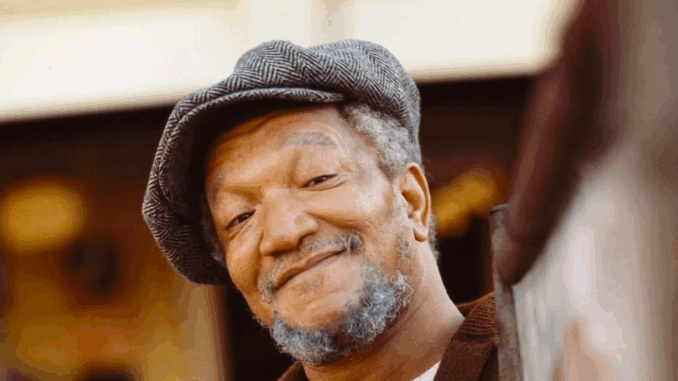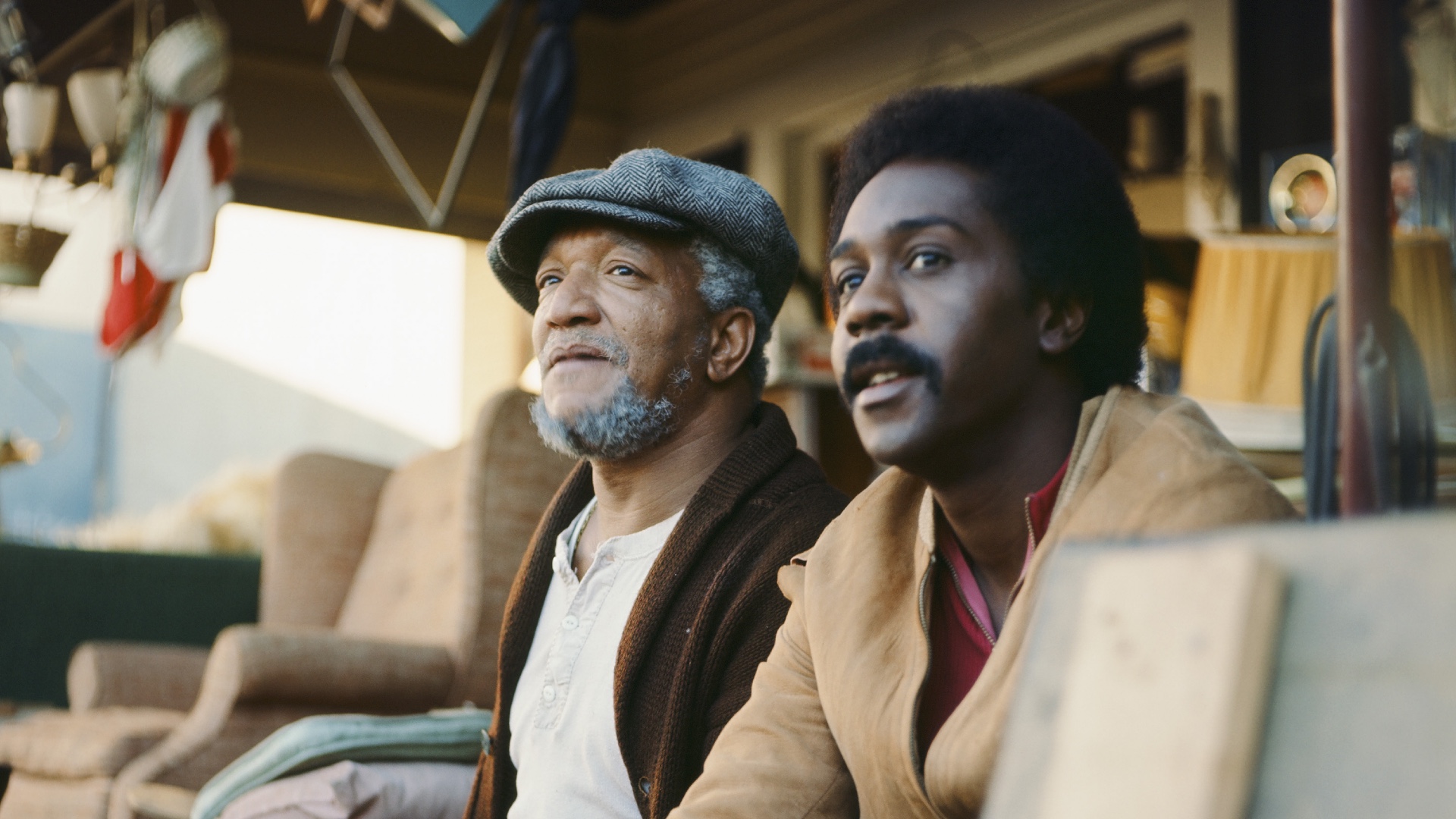
It’s been over 50 years since Sanford and Son first aired, but the echoes of its punchlines, one-liners, and hard truths still resonate today. At a time when most television avoided real-life grit, Sanford and Son pulled up a threadbare couch, invited us in, and unapologetically laughed in the face of poverty, generational clashes, and race. The man at the center of it all? Redd Foxx — a raw, uncompromising comedic force who changed television forever.
Redd Foxx: Comedy’s Original Rebel
Before Sanford and Son, Redd Foxx was a nightclub legend known for X-rated albums that defied the era’s prudish boundaries. His material wasn’t just raunchy — it was truthful, urgent, and painfully funny. He didn’t soften his edges for white audiences, nor did he attempt to “clean up” for network executives.
So when NBC handed him the lead role in a prime-time sitcom in 1972, it was a seismic shift. Foxx’s portrayal of Fred Sanford, a junk dealer in the Watts neighborhood of Los Angeles, wasn’t polished. It wasn’t sanitized. It was real. And in being real, it was revolutionary.
A Sitcom That Didn’t Feel Like a Sitcom
Most sitcoms at the time came dressed in perfect suburban homes and canned laughter. Sanford and Son walked in with a limp, grumbled about arthritis, and dared you not to laugh.
The set was cluttered. The characters yelled. And the storylines — centering around bills, hustle, grief, and survival — were ripped from the pages of everyday life. It wasn’t just comedy. It was survival with a side of sarcasm.
Foxx’s signature fake heart attacks (“This is the big one, Elizabeth!”) became iconic — not because they were silly, but because they were the perfect armor against a world constantly pushing Fred Sanford to the margins.
A Blueprint for Today’s Comedy

Trace the DNA of modern comedy, and you’ll find Sanford and Son buried in its roots.
Shows like Atlanta, Abbott Elementary, and even The Bernie Mac Show carry the same sense of lived-in realism, biting wit, and cultural truth-telling that Foxx championed. They walk the tightrope between laughing with and laughing at — a balance Foxx mastered decades earlier.
Even Dave Chappelle and Chris Rock have spoken about how Foxx’s stand-up and television work opened doors not only for Black comedians, but for the kind of honest, uncomfortable comedy that challenges as much as it entertains.
The Chemistry That Made It Work
Demond Wilson’s portrayal of Lamont Sanford was the perfect foil for Fred’s old-school grumbles. Together, they weren’t just father and son — they were two generations trying to understand each other in a world that wasn’t built for either of them.
The insults flew fast — “You big dummy!” — but beneath it all was real affection. That constant push-pull, the unspoken “I love you even when I hate you,” is what made the show endure. It mirrored real families, especially those living under pressure.
Why It Still Matters
In an age where nostalgia content floods the internet, Sanford and Son stands out because it never tried to be nostalgic. It wasn’t about remembering the good old days. It was about surviving the present — with wit, hustle, and the occasional jab at Aunt Esther’s church hat.
The show also broke ground by putting working-class Black life at the center of network television. That mattered then, and it matters now. Because while representation has come a long way, there’s still power in stories that reflect life with all its messiness intact.
The Quiet Legacy of Redd Foxx
When Redd Foxx died of a heart attack in 1991 — ironically, while rehearsing a scene for The Royal Family — the comedy world lost one of its fiercest voices. But he didn’t go quietly. Every time a comedian delivers a hard truth with a smirk, every time a sitcom dares to show life in all its imperfect glory, Redd Foxx lives on.
He once said, “I’m not a dirty old man. I’m a sexy senior citizen.” That line, like many of his others, is funny because it’s fearless. And that’s exactly what Sanford and Son gave us — fearless, funny, full-bodied television that refused to flinch.